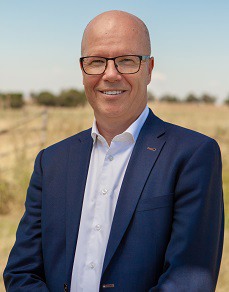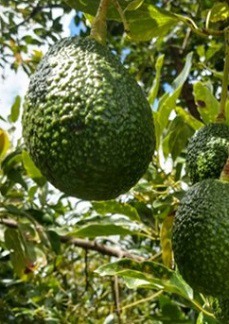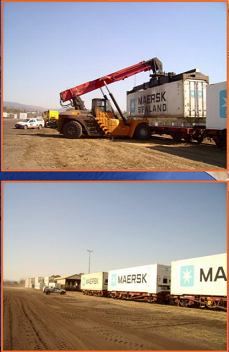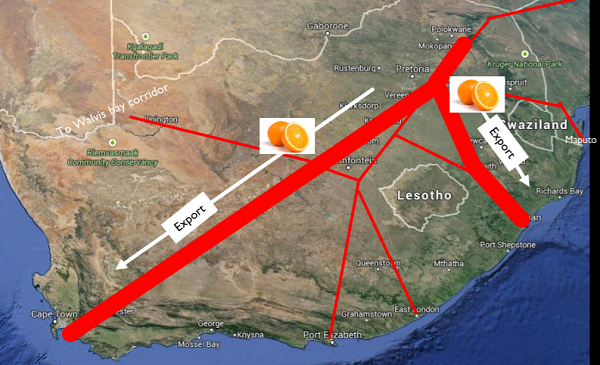 Jack Vera, outgoing agricultural attaché at the Embassy of the Netherlands in South Africa (right), has just returned from a trade mission to Angola, the other country in his portfolio, where the Dutch government has identified a number of commodities with commercial potential, like mangoes, citrus, banana and potatoes.
Jack Vera, outgoing agricultural attaché at the Embassy of the Netherlands in South Africa (right), has just returned from a trade mission to Angola, the other country in his portfolio, where the Dutch government has identified a number of commodities with commercial potential, like mangoes, citrus, banana and potatoes.
He will be succeeded in the post by Niek Bosmans, currently the agricultural attaché in Ethiopia.
He came to South Africa, a country with particular interest for him as a trained historian, during the Zuma years. He has seen a more positive shift and more interest towards South Africa on the part of Dutch investors since President Cyril Ramaphosa took over.
The Dutch government is probably the most active foreign mission, certainly the most visible, in the South African agriculture sector, particularly in fresh produce and some of the livestock sectors.
During his time in South Africa Jack has often had occasion to point out that the surface area of the Netherlands is one-and-a-half times that of Gauteng Province, South Africa’s smallest province. “We export fresh produce goods to the value of 95 billion euros and of that, 60 billion euros in value is produced in the Netherlands itself. Some people think we only import and export but no, we produce as well. We’re one of the biggest tomato producers in the world.”
 In Southern Africa their focus at the moment is on research and innovation. “There has been a change of policy, from aid to trade,” he explains.
In Southern Africa their focus at the moment is on research and innovation. “There has been a change of policy, from aid to trade,” he explains.
“Ten years ago we did a lot of development aid but we’ve changed the focus to trade relationships. It doesn’t mean we only do hardcore trade, there are still options for connections through educational programmes, for instance, but it needs to be connected to some kind of trade relationship.”
Ensuring the free, unimpeded flow of trade is of keen interest to the Netherlands: 40,000 container ships enter the Port of Rotterdam annually, containing ten million containers. Spain is the biggest importer of fresh produce into Netherlands (33% of total imports in 2018) followed by South Africa (15% of total imports during that year). Therefore one of Jack’s most important mandates was to ensure that this trade keeps flowing both ways.
Flying Swans Consortium  Export logistics during South Africa’s peak citrus season is one such matter to which the Dutch have applied their minds together with local partners (a sine qua non of all Dutch activity overseas), resulting in the Flying Swans Consortium.
Export logistics during South Africa’s peak citrus season is one such matter to which the Dutch have applied their minds together with local partners (a sine qua non of all Dutch activity overseas), resulting in the Flying Swans Consortium.
The consortium consists of, on the Dutch side, the Port of Rotterdam itself and GroentenFruit Huis and on the South African side Transnet, the Citrus Growers’ Association and Fruit South Africa. A memorandum of understanding is due to be signed later this month, but already the consortium has enabled Transnet to double its rail capacity for these goods.
“It’s an agrologistics project to move away from trucking citrus from the north of the country into the ports by rather changing to rail. The aim is to establish distribution centres for instance in Tzaneen, or in Johannesburg, to get product loaded into containers on the train. From that moment the containers are transported directly into the port and you have an unbroken cold chain,” he explains.
“It’s intended mainly for the European market. The quality should be better, with longer shelf life. Transferring onto rail means lower carbon dioxide emission. We’ve calculated that even if the train goes to Coega in the Eastern Cape or to Cape Town, instead of to Durban, the time from the farm can be reduced by five to ten days. In this way, the congestion at Durban Harbour can be relieved.”
 The vision of the Flying Swans Consortium: a citrus train to, primarily, the harbours of Durban and Cape Town
The vision of the Flying Swans Consortium: a citrus train to, primarily, the harbours of Durban and Cape Town
Dutch support of SA citrus phytosanitary measures
Jack admits that there are periods when South African citrus takes up a lot of his time. He is a conduit between his own government and its role within the European Union and European Commission, and local industry who wish to have their interests represented at the highest level.
“We have a little bit of a double face here: on the one hand we’re part of the EU and we have to apply European legislation and we do it as well as we can. On the other hand we try to influence EU policy in what we think is the right decision. Seeing that we have a lot of trade and a trade interest we also have the view we want to avoid disruption of trade as much as possible. That means we’re looking very carefully at what the EU is proposing and whether it serves all purposes.”
The Netherlands has placed its full confidence in the South African Phytclean system that inspects, monitors and logs data regarding false codling moth and citrus black spot throughout the entire citrus value chain, from orchard through packhouse to ship. Such is their belief in the inviolability of the PhytClean system that it is the basis document around which the e-Certification project has been structured.
“Traditionally trade needs a lot of paperwork and for a long time we’ve been moving over to electronic certification of shipments. Phytclean informs the e-Certification process and as soon as the e-certificate is handed over, seconds later it is in the Netherlands, even if a consignment is still in the packhouse in South Africa. It gives Dutch customs a few weeks to perform parts of our checks before the consignments arrive, then the rest of the checks are based on the electronic certificate. There is less red tape and it is more secure.”
E-Certification on track in table grapes & citrus
He notes that the South African fresh produce industry is on a trajectory to cover 100% of table grape and citrus consignments to the Netherlands in the e-Certification process, with other sectors to follow in due course. “South Africa can just copy this and use it elsewhere, for instance in the USA or China where it’s already in use. All other plant-based commodities should be in the system this year or next year. As soon as you have the basics right, all you have to do is to add the specific requirements for a specific commodity.”
Next step will be to broaden the e-Certification scheme to veterinary products and imports from the Netherlands into South Africa, for instance pork, recently poultry again and counterseasonal apples and pears.
The Netherlands have always engaged their Spanish colleagues on these developments. “We try to take them along but they don’t have such sophisticated systems. The e-Certification system doesn’t mean we perform fewer checks – it means we perform them more efficiently. It’s still based on European and global standards.”
Vocational training in agriculture
The Dutch government is also very active in educational programmes in the agricultural sector, currently involved in curriculum revision at various TVET (Technical and Vocational Education and Training) colleges and Agricultural Training Institutes across South Africa to include and implement up-to-date practical components.
The Dutch government has set aside 4.5 million euros over three years to support vocational training in agriculture, whether horticulture or livestock farming. Working with the industry is an integrated part of this.
To this end they are also setting up a Knowledge and Development Centre for Horticulture in the Western Cape, a showcase of contemporary technologies in covered farming and hydroponics, not just Dutch. It will be the first of its kind in South Africa and modelled on similar centres in the Netherlands and elsewhere, for instance Kenya.
For more information:
Agricultural Affairs, Embassy of the Kingdom of the Netherlands
Tel: +27 12 425 4570
Email: pre-lnv@minbuza.nl
Twitter : Agri_NlinSA
https://www.netherlandsandyou.nl/your-country-and-the-netherlands/south-africa/ https://www.agroberichtenbuitenland.nl/landeninformatie/zuid-afrika
